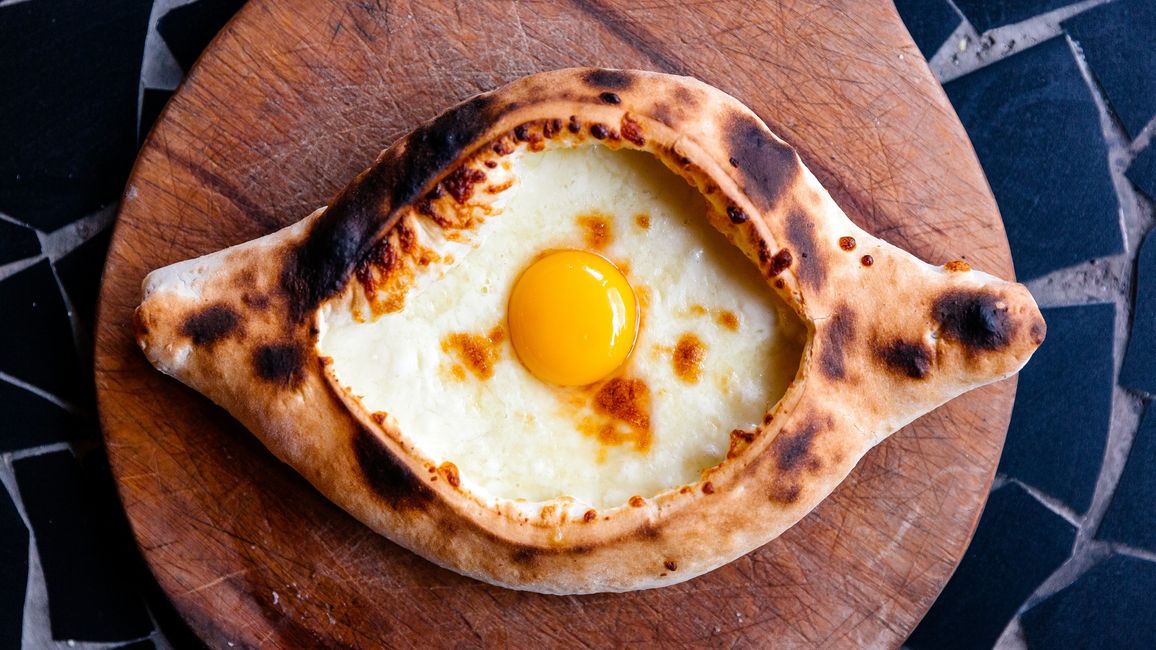Don Curry and the Clean City
ޝާއިޢުކޮށްފައިވެއެވެ: 05.10.2023
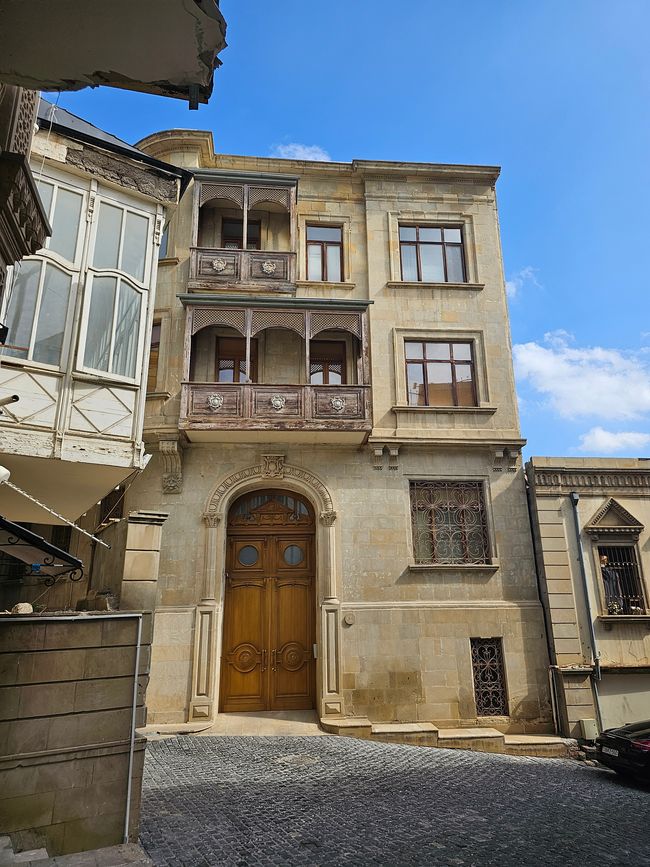
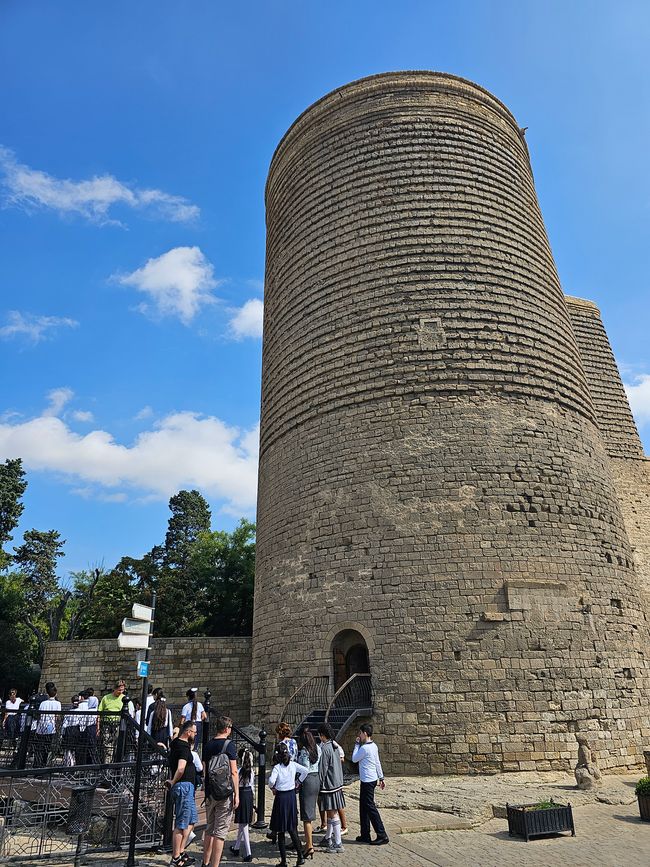
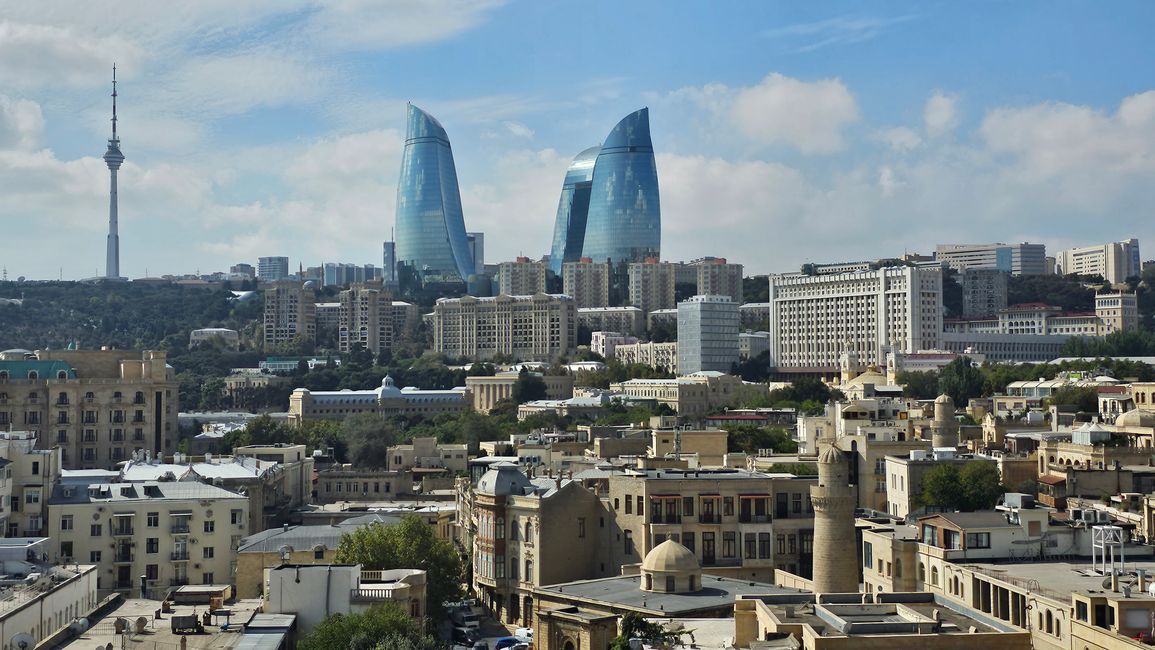
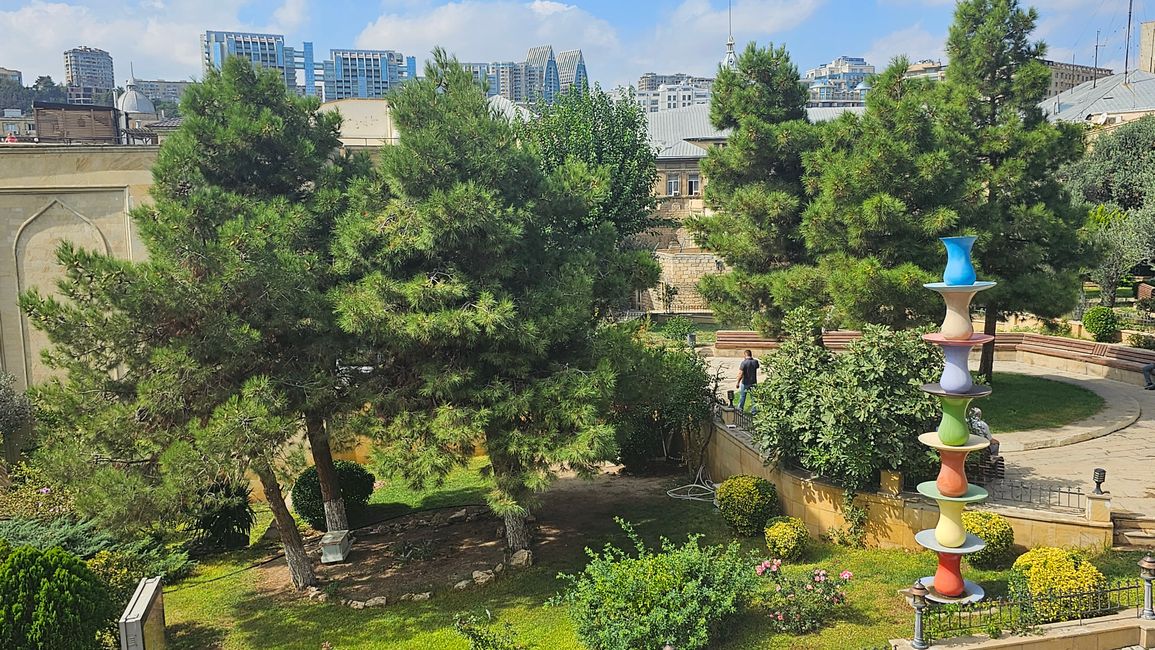
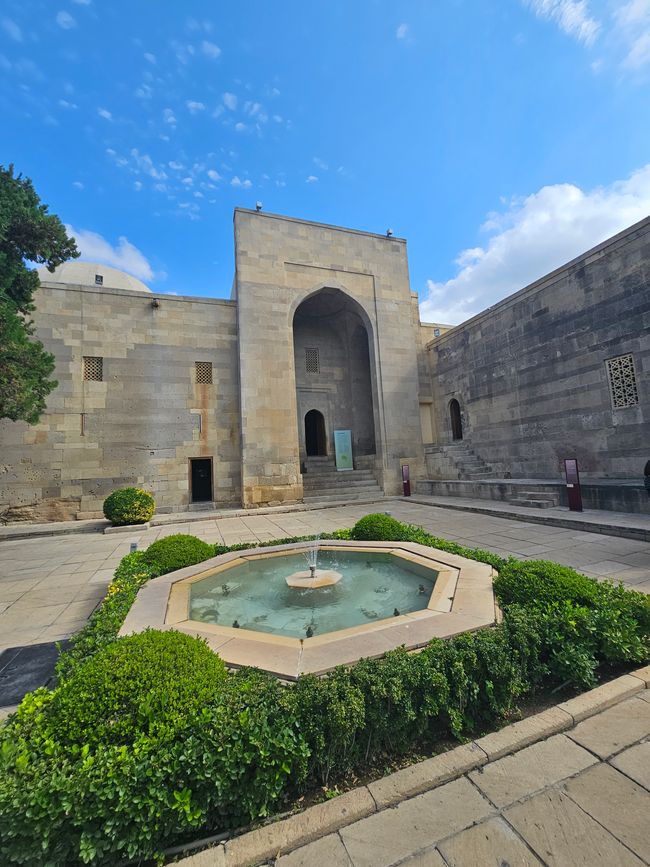
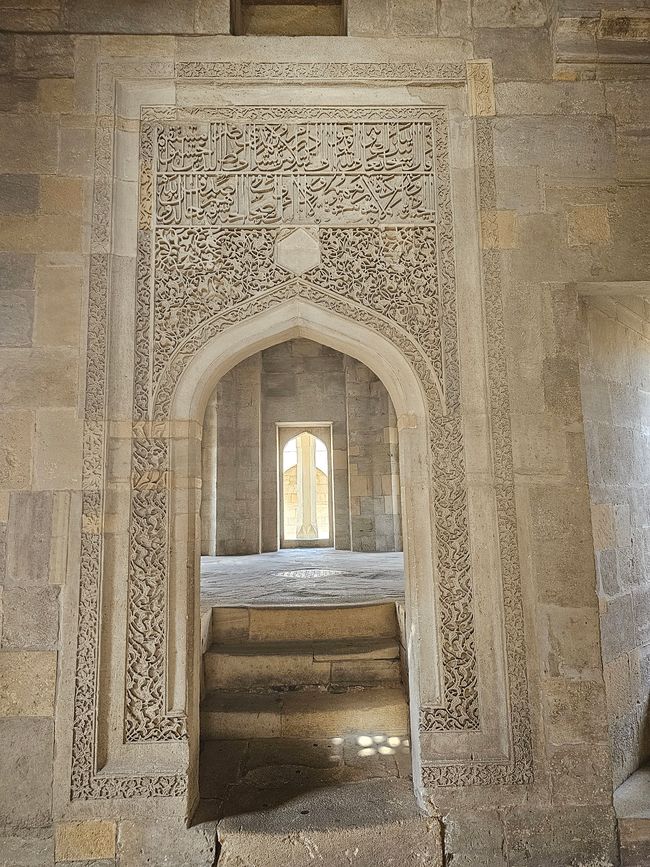
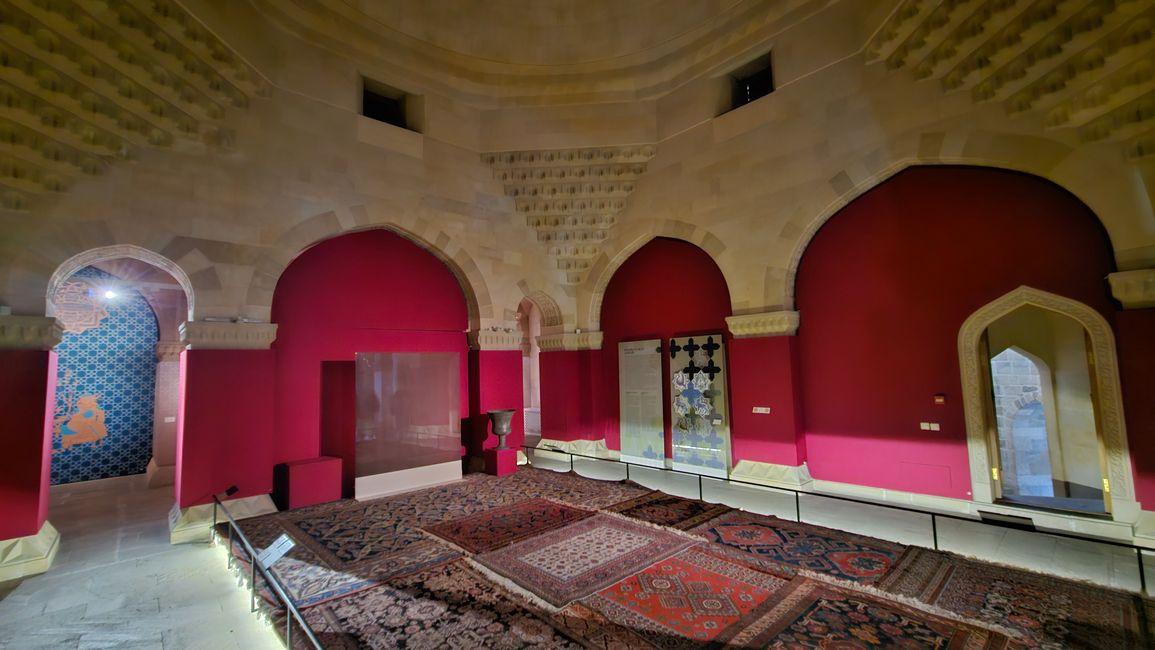
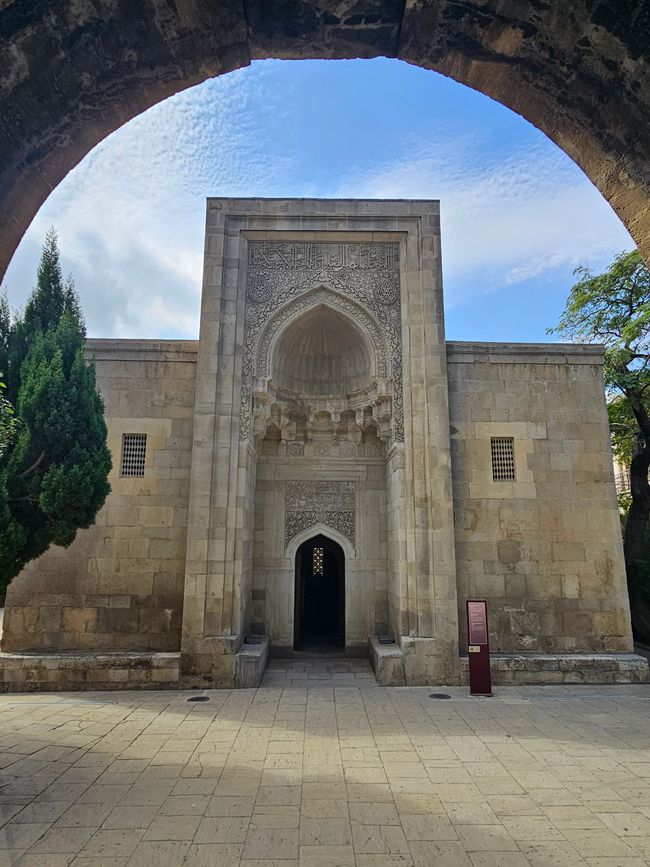
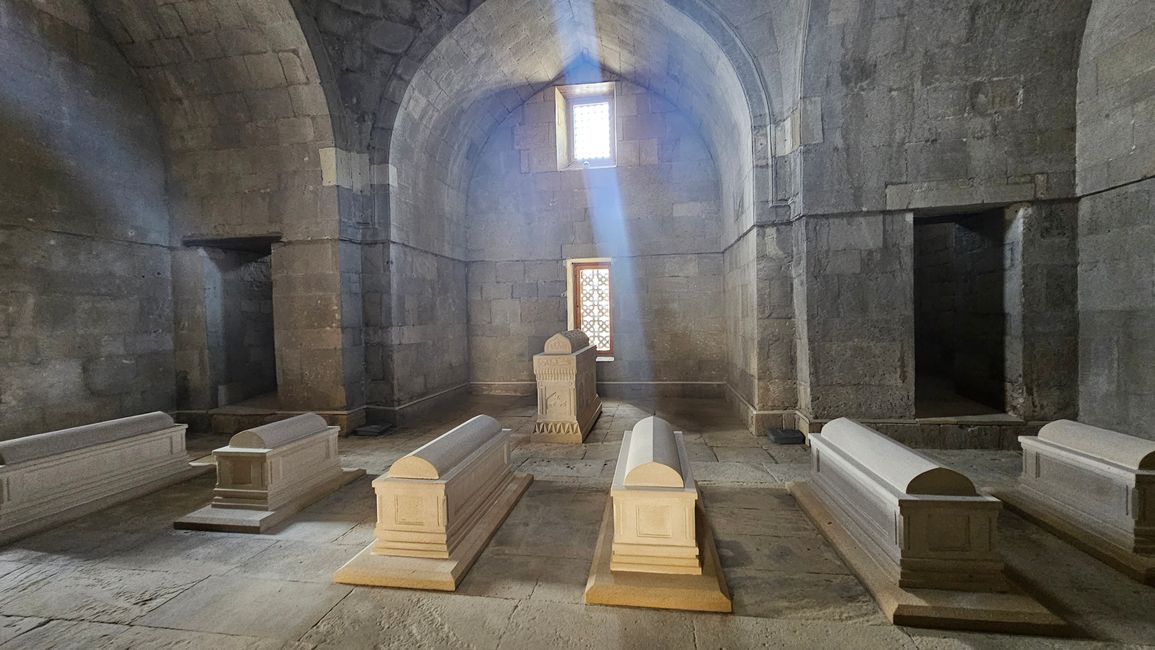
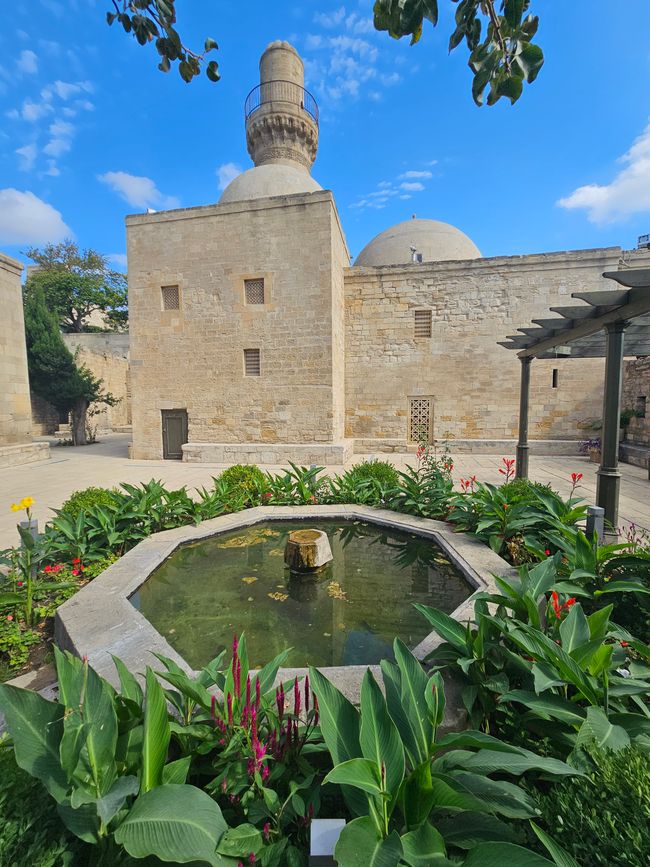
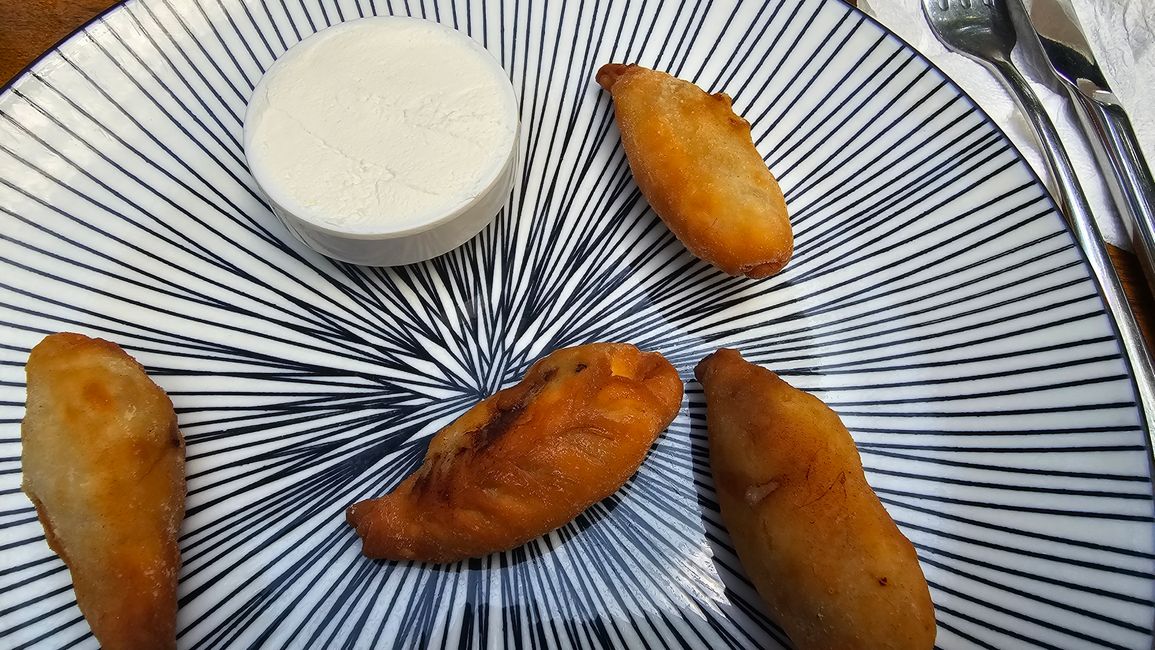
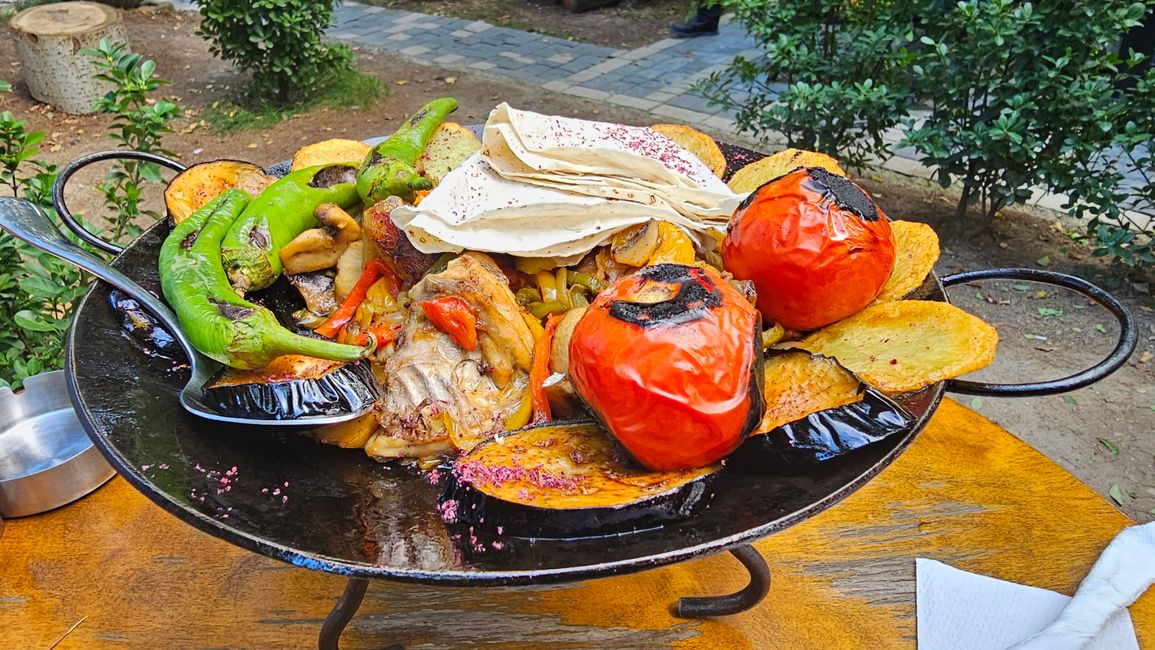
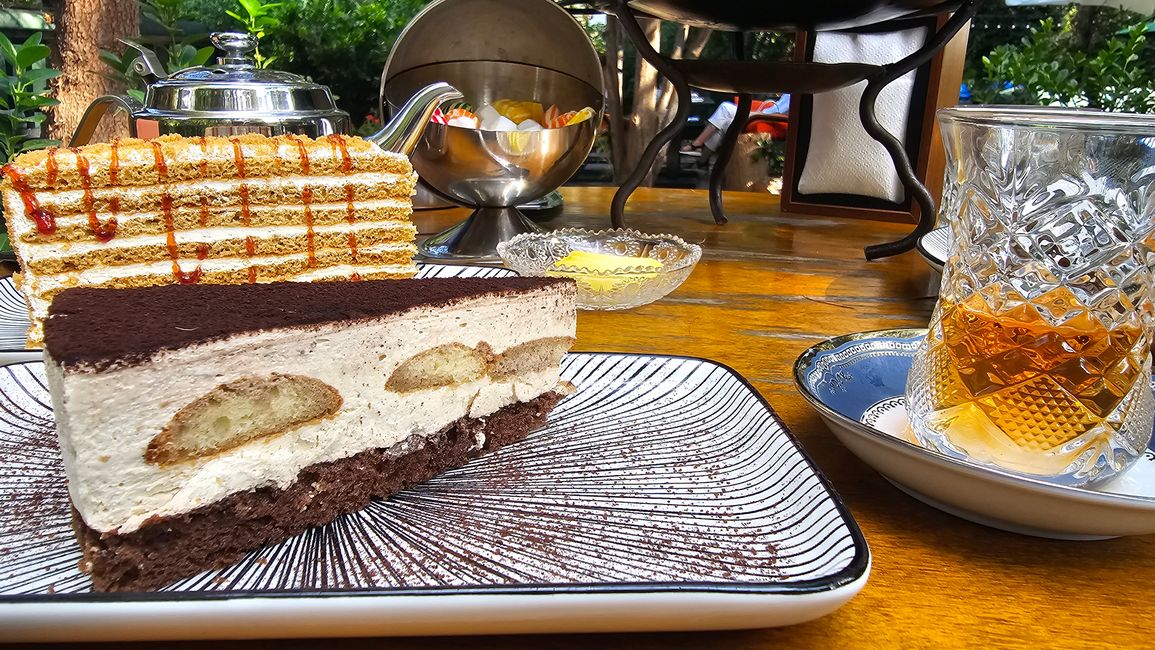
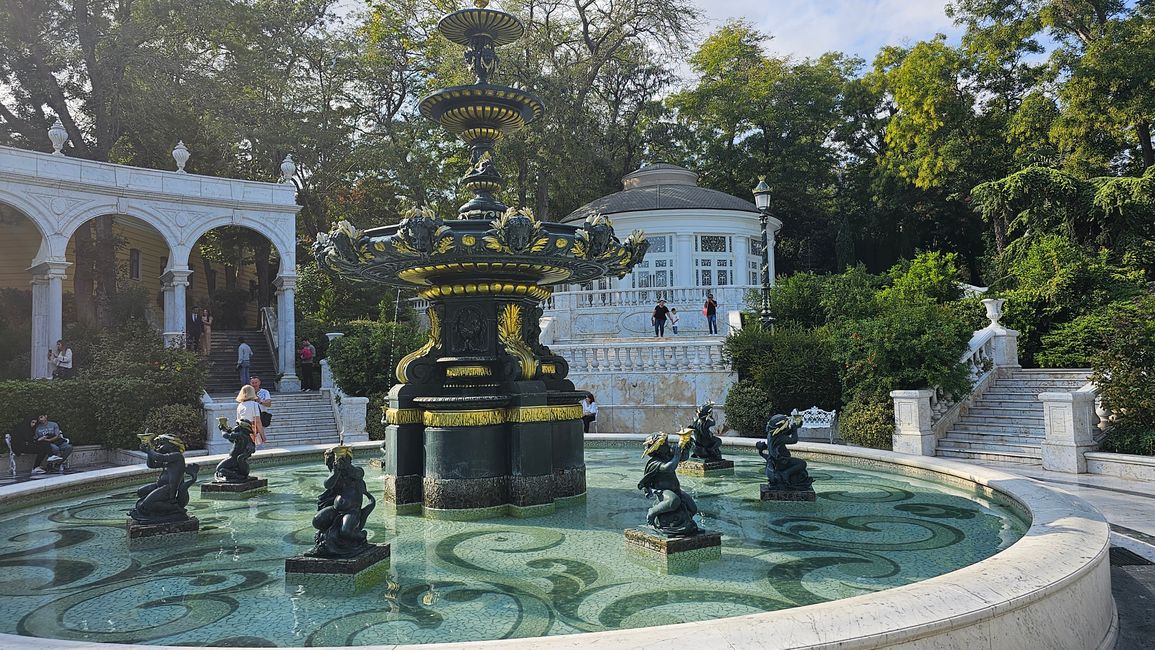
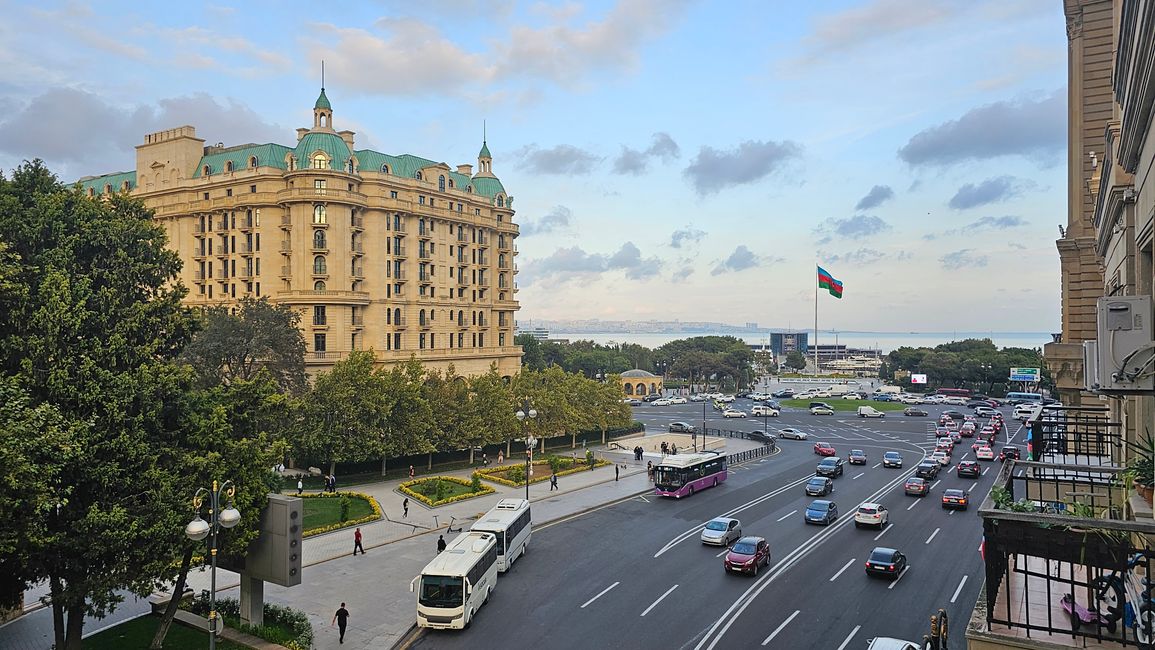
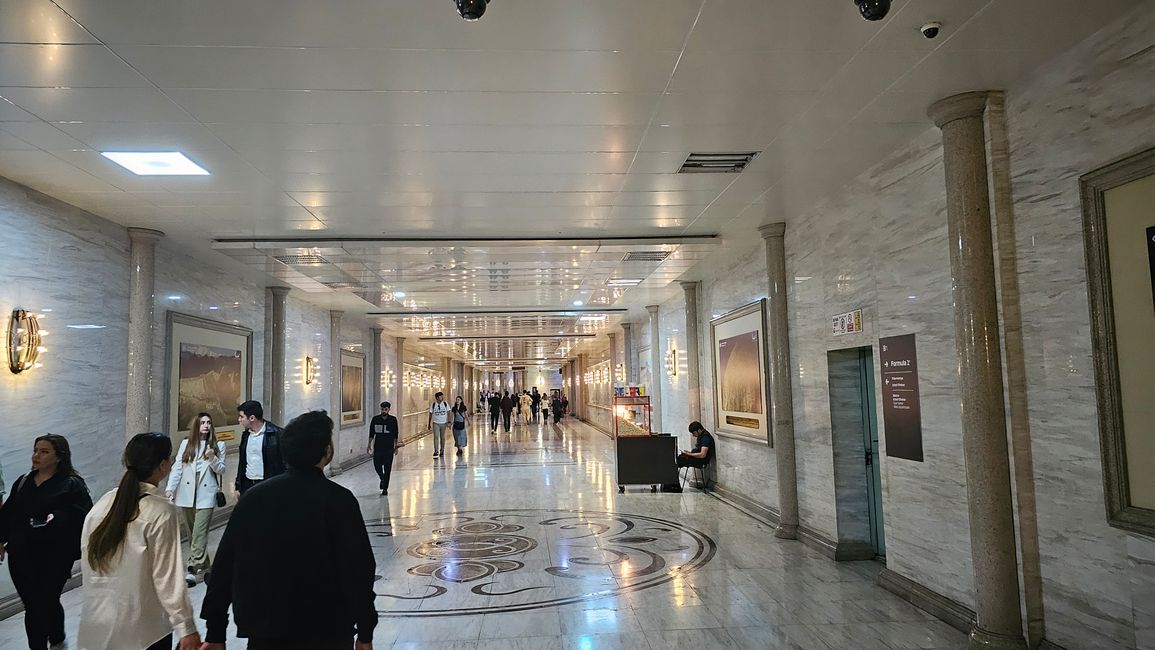
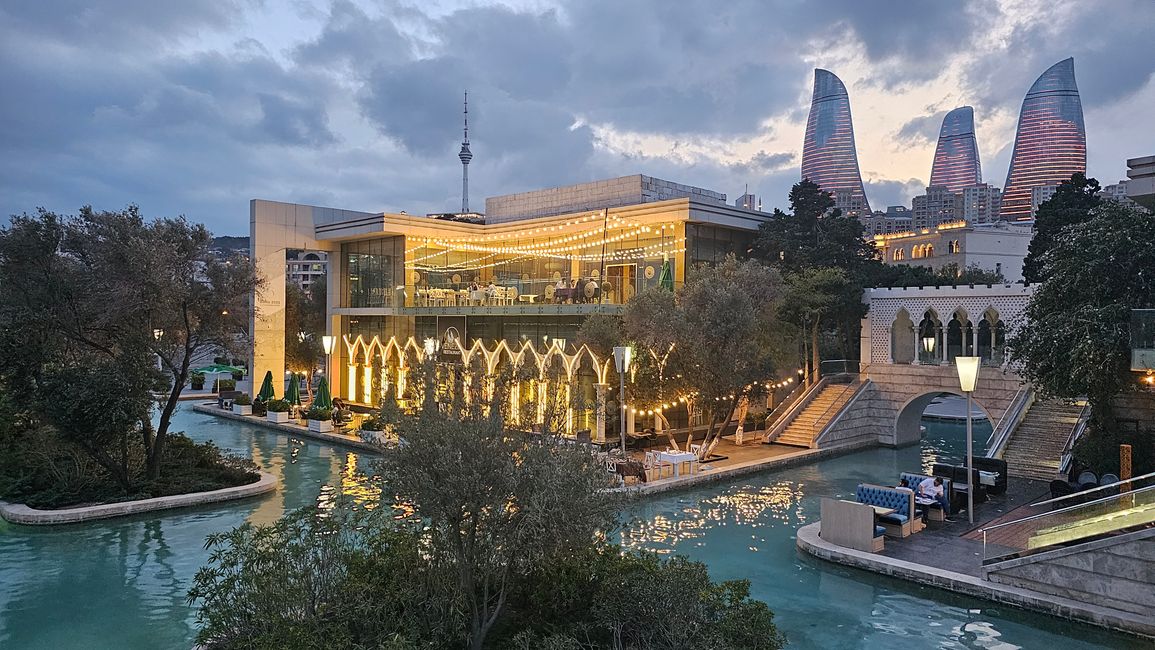
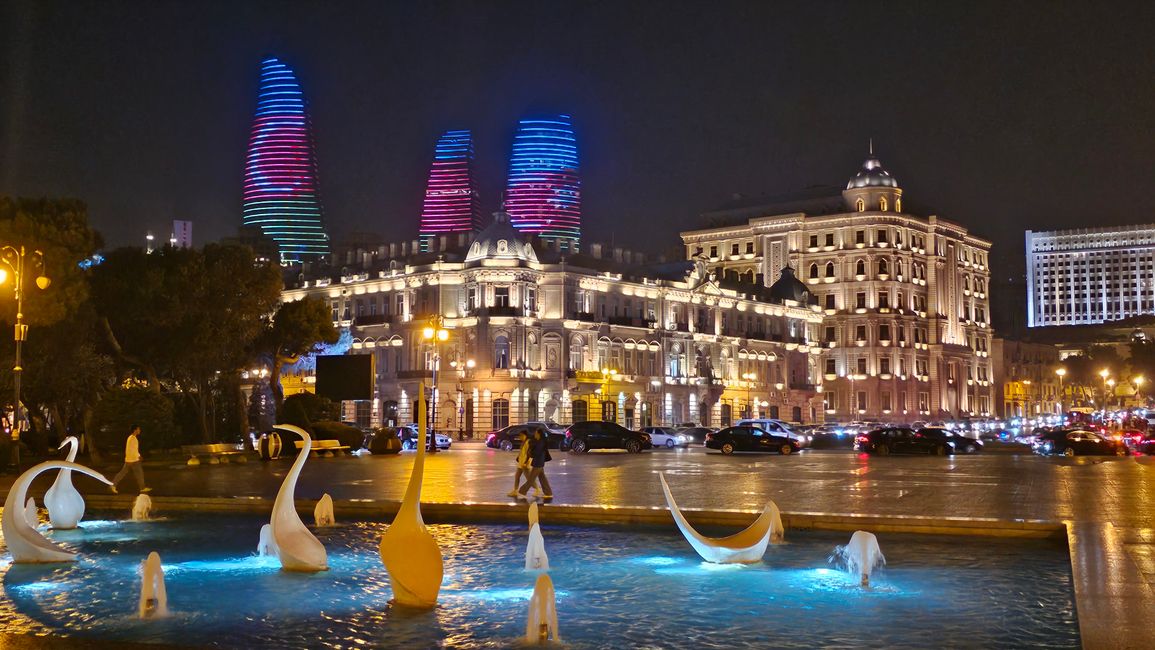
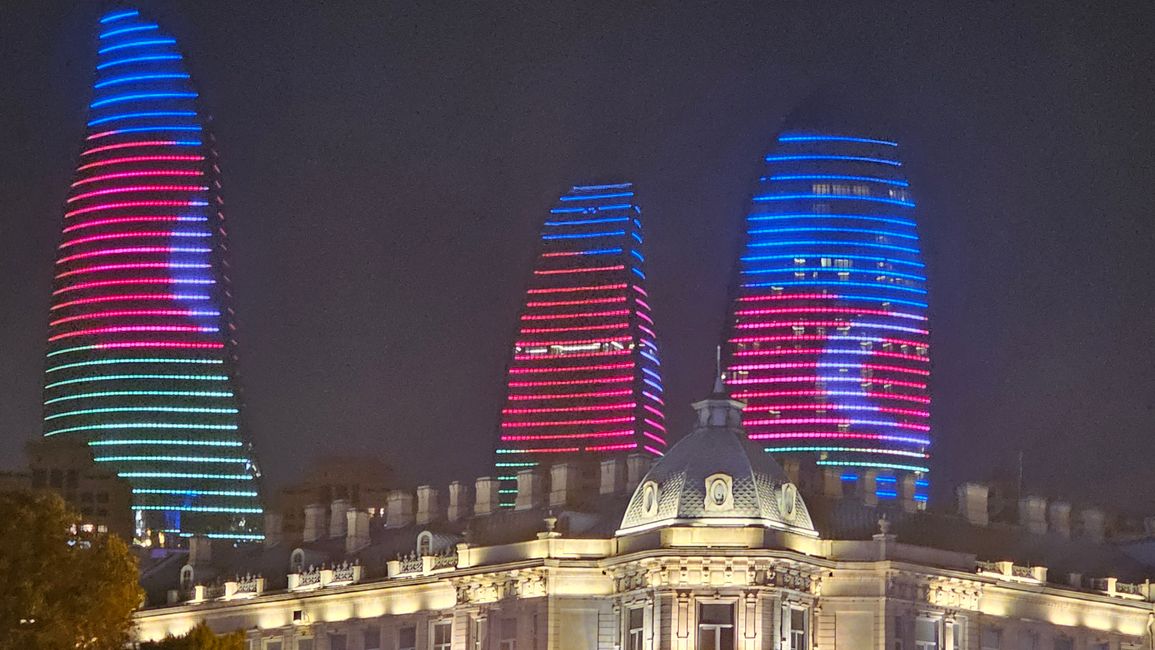
ނިއުސްލެޓަރ އަށް ސަބްސްކްރައިބް ކޮށްލައްވާ
Don Curry has visited many cities on his travels. As a result of globalization, they have become more and more similar in many aspects. McDonald's branches and Dolce e Gabbana shops can now be found everywhere. And yet cities, just like people, have their own personality and character. Don Curry still remembers the almost overwhelmingly lascivious, morbid charisma of Naples, the omnipresent polyglot atmosphere of Brussels and the extremely brittle charm of Yerevan, which only became apparent behind the facade of obvious ugliness after a lot of well-meaning patience.
Baku did not fit into any of these categories. Quite the opposite: there is nothing morbid, polyglot here (except Jabir, of course!) and certainly nothing ugly. The capital of Azerbaijan presents itself as a very vital center, full of restaurants, shops of all kinds and a variety of leisure options, including some quite unusual ones. For example, between the capricious building of the Philharmonic Hall, which was very reminiscent of a huge Baroque church, and the massive old town wall, there is a concert grand piano under a large lamp - passers-by can demonstrate their pianistic skills here day and night; and they actually do that. Almost every time Don Curry passed the grand piano, artistic melodies could be heard there. Don Curry found the large chess facility on the waterfront promenade just as original, where crowds of people formed to watch the exciting progress of the game and occasionally even cheer on the two opponents.
Baku is (still) a long way from being polyglot and cosmopolitan. If obvious tourists are not walking around in groups, they are usually classified as Russians and addressed accordingly. Knowledge of English is quite common. Don Curry was almost always able to easily manage the purchase of tickets, going to a restaurant or getting drinks in English. And if a saleswoman or waiter didn't understand anything, you quickly called in a colleague who could help out. Don Curry was irritated by the strong national consciousness that he repeatedly encountered. The people were proud to be Azerbaijani, and Don Curry was asked several times in the first two days how he liked Baku and Azerbaijan. Of course, when you can admire the huge Flame Towers in the colors of the Azerbaijani flag every evening, and the president repeatedly propagates a clearly nationalist policy, something like this quickly takes root in people's minds and hearts. But Don Curry experienced genuine curiosity about the guest from abroad as a healthy counterweight to an overemphasis on ethnicity. Because the question about his origins came up even more frequently than the question about his assessment of Azerbaijan. Even when he wanted to buy a Cola Zero at a small kiosk on the waterfront in the evening, he immediately had a conversation with the interested young salesman, who was then able to tell us that his father had worked in Berlin for a few years.
The least appropriate attribute, however, is that of ugliness. On his first drive through the city, Don Curry could only be amazed. He can't remember being so impressed by the architecture of a city - across the board. Baku seemed to him as if someone had wanted to create an ingenious mix of Dubai, Saint Petersburg and Istanbul. Of course, Dubai is reminiscent of the huge high-rise buildings on the outskirts of the city, real glass palaces that try to avoid any stupid box shape. Instead, curved lines, twisted shapes, sometimes the imitation of floral concepts or a clear expression of organic growth predominate. In the city center area there are buildings that clearly date from the Russian-Soviet period. But instead of stereotypical prefabricated buildings, which are so common in Yerevan, Baku represents a veritable playground for renowned and aspiring architects who were able to really let off steam with the stylistic devices of Stalinist displays of splendor, Orientalism and European Art Nouveau. The beginning of the oil boom at the turn of the 20th century. created a large number of wealthy customers who wanted to show off their economic success in the form of representative buildings and palaces.
The comparatively tiny old town, the actual core of Baku, is a world of its own. Behind thick defensive walls there existed a thoroughly oriental city with mosques, caravanserais and narrow, winding streets. Don Curry researched all of this intensively that day - from the Maiden Tower to the Shirwanshah Palace, which, together with the entire old town, is a UNESCO World Heritage Site. Don Curry felt reminded here more of the Islamic character of the old town of Istanbul, not of the exuberantly oriental chaos of the medina of Fez or Cairo. Baku's old town gained a lot of charm when the subtle street lamps gave the houses and walls a golden light in the evening.
Don Curry took time for Azerbaijani cuisine for the first time that day. He had actually chosen a restaurant right next to the Maiden Tower, and when he left around 12:00 p.m. after completing the tour and thoroughly admiring the fantastic view from the roof platform, he had already developed a sufficiently hungry feeling. But at reception he was told that only breakfast was being served at the moment and lunch didn't start until 1:00 p.m. Don Curry really didn't feel like eating breakfast at this time. So he moved on, explored in detail the palace of the Shirwanshah dynasty, which ruled Baku and the surrounding area in the Middle Ages, and finally ended up in the wonderfully shady garden of the "Kükü" restaurant, not far from his apartment. He chose fried Gürzä as a starter, without knowing exactly what to expect. The waiter soon brought him a bowl with 8 pieces of shortbread, the shape and size of a little finger. These gürzä are filled with a spicy mixture of minced lamb and lamb fat and were served with a fairly sweet cream cheese. Delicious! In the end, the numerous restaurant cats in attendance enjoyed his main course more than Don Curry: he ordered a chicken saj. The Saj is a wok-like pan that is typical of Azerbaijan. Meat and various vegetables are seared in it and then poured over with meat broth and served with lavash bread. Unfortunately, Don Curry only discovered the strong broth at the bottom of the saj very late, because without it the meat and vegetables lacked the necessary seasoning. In addition, some tomatoes and peppers were so burnt that they simply tasted bitter. The chicken must have been breastless because the saj only contained bony pieces with meat that was difficult to gnaw off. Don Curry tried his best and left the rest to the delighted cats. The "Kükü" salad was much more satisfactory, a good mix of small pieces of tomato and cucumber with corn and leaf lettuce, refined with a sweet and spicy dressing. For drinks, Don Curry chose still water and an Alivaria beer, which he thought was a beer from Azerbaijan. Only later internet research revealed that he had drunk his first beer from Belarus. When it came to dessert, he made a clear mistake: he ordered a sweet tea set, expecting to get a large glass of Azerbaijani tea with two pastries. The waiter served a large pot of tea with two huge slices of cake: a tiramisu and a honey cake. Don Curry ate the former and had the latter packed up. More than satisfied, he returned to his nearby apartment and took a long siesta.
He had actually wanted to climb to the Flame Towers later in the afternoon, but the completely overcast sky took away much of the visual appeal of the glass towers. Instead, Don Curry moved towards the waterfront, using the exquisitely designed pedestrian passage to cross under the extensive Azneft roundabout, Baku's most important traffic junction, and just in time to see the huge Azerbaijan flag on the promenade being lowered as darkness fell. Shortly afterwards, the Flame Towers began their light display to strengthen national sentiment. At “Little Venice,” people lined up to be transported through the artificial canals on silent electric gondolas.
Meanwhile, Don Curry enjoyed the awakening night skyline of Baku with its diverse but still subtle glitter and sparkle. When he reached the pedestrian zone of the modern city center, he was immediately reminded of cities like Paris, Brussels and Riga. Countless street restaurants had spread out under plane trees and other trees and were vying for customers. Suddenly Don Curry noticed what was completely different here in Baku than in all the cities already mentioned - the dirt, the rubbish, the thoughtlessly thrown away garbage was missing. The more lively and attractive a city is, the more dirty places it has. Baku doesn't have that. There are no dirty places anywhere here. There is no graffiti or graffiti anywhere here. There is no visible poverty here, no bum in front of the shop window, no beggar woman holding out her hand. Baku is a thoroughly clean city! The only thing that creates disorder on streets and squares is the freshly fallen leaves of the trees - but only for a few hours.
Don Curry had already observed yesterday how this cleanliness is achieved. Countless cleaning crews regularly roam the entire city. There are almost always three of them: the man pushes the large bin, the two women sweep the rubbish towards him. No wonder supermarkets here generously push plastic bags; They have no chance of polluting the environment, the cleaning crews are faster. And the omnipresent surveillance cameras certainly help against graffiti and begging. Nothing escapes them. And somewhere there will be someone for whom it is extremely important that everything is clean and runs in an extremely orderly manner.
Meanwhile, Don Curry decided to try for an Armenian solution for the evening because of the sumptuous lunch, or more precisely: a Yerevan solution - to enjoy a delicious shawarma with plenty of beer comfortably on the balcony. He was able to easily order the shawarma to take away in the city center. Buying a beer was more difficult, as a liquor license is either expensive or rare to obtain. Don Curry finally found a store that also sold beer. Surprisingly, it was not the brand or origin of the beer that determined the price, but only the quantity. A liter of beer - regardless of the type - cost 3.30 manat (approx. €1.60). To be on the safe side, Don Curry took 2 liters of Azerbaijani Xirdalan beer with him and was once again surprised by Baku. It was pouring rain as we left the store. Even though he only had to walk 200 meters to the apartment, he was soaked to the skin during that distance. He could now forget about a cozy evening in Yerevan - the balcony has no roof...
Does Baku consciously resist being compared to other cities? Don Curry is still unsure how to truly assess this city. Sure, it is vital, extraordinarily beautiful and, above all, extremely clean - but there is still an unpleasant feeling in the background. When Don Curry looks from his balcony not at the Caspian Sea, but in the opposite direction, he sees the presidential palace: a huge block that, above all, radiates power and size and wants to be unmissable. Maybe the cleanliness celebrated every day in Baku is just meant to cover up the real dingy spots...
ނިއުސްލެޓަރ އަށް ސަބްސްކްރައިބް ކޮށްލައްވާ
ޖަވާބު
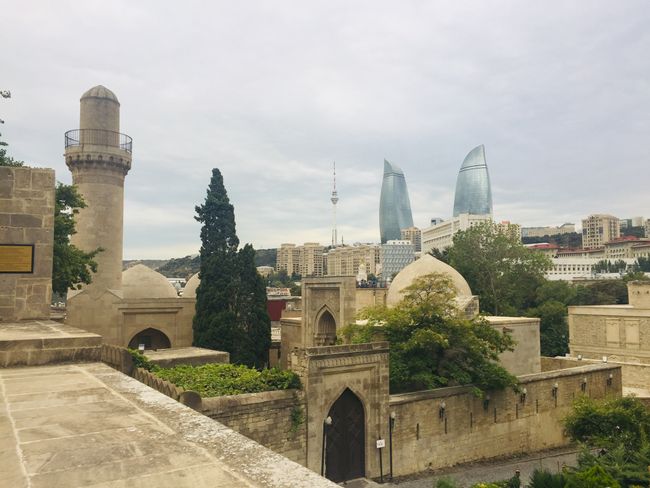
ދަތުރު ރިޕޯޓްތައް އަޒަރުބައިޖާން އެވެ

